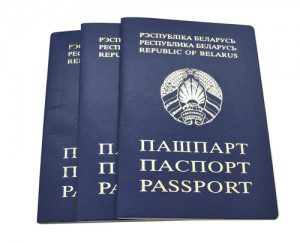Index relies entirely on the support of donors and readers to do its work.
Help us keep amplifying censored voices today.
Activists in Minsk have been arrested for laying flowers and detained by police at Kastrychnitskaya metro station during a ceremony to open a memorial sign “River of Memory” near the station entrance. They were then taken to the Leninski district police department. Viasna Human Rights Centre reported the names of two of the individuals as Anastasia Shuleika and Yury Khodus, while other reports say the activists were accused of swearing.
Despite official denials, it seems clear that the Lukashenko regime has blacklisted key media and opposition figures, preventing them from leaving the country. Andrei Aliaksandrau reports
(more…)
Andrej Dynko, managing editor of independent Belarusian newspaper Nasha Niva and Index on Censorship contributor, was ordered to get off a train while travelling from Minsk to the Lithuanian capital, Vilnius. Border guards did not give the journalist explanations, recommending instead he get further information from the migration and citizenship department of Belarus’ ministry of interior affairs. Several other Belarusian public figures have faced similar difficulties leaving the country recently, including the opposition United Civil Party leader Anatol Lyabedzka.
In an article in the New Statesman in January 2011, Neil Clark wrote the following: “Belarus has one of the lowest levels of social inequality in the world. Lukashenko wins elections not through fear, but because he has delivered social protection and rising standards of living.”
After reading Andrew Wilson’s, Belarus, The Last European Dictatorship, most readers will be left with little sympathy for the ruthless Lukashenko regime, which Mr Clark praises in that article.
By exploring Belarus’s history, and religious and cultural beliefs over several centuries, Wilson tries to come to terms with its present political game of balance between Russia (who has given the country 50 billion dollars in subsidies since 1991) and the West, who it has been courting on and off in recent years.
Wilsonsays that the key to Belarusian history is that it lies at the cross roads of many cultures, and that Belarusians have a long tradition of bandwagoning — of seeking out and joining the stronger side.
In World War 2 Belarus suffered the most casualties out of any European country; nearly half of the entire population was either killed, or sent to labour camps in Germany, and out of 270 towns and cities, 209 were burnt to the ground and nearly 1.2 million buildings destroyed.
It takes Wilson halfway though the book for him to reach what he really wants to talk about: Belarus’s current president, Alexander Lukashenko, who he introduces on page 148 as: “quite literally, a bastard, and a pig farmer.”
Wilson gives an account of how Lukashenko has built up, and continues to run an authoritative state in Belarus.
In one instance, we are given a direct quote from the president, from a private meeting he had with Prime Minister, Mikhail Chyhir back in 1994: “Nobody will be going to the square here. Here there’ll be tanks and machine guns, and no one will dare step out. You can do whatever you like.”
Wilson lays down the bare facts for any would-be sympathisers to this regime, deterring any myths that have been created on the left that paints Belarusas as some kind of Cuba of the East, or a country with strong social solidarity.
As a dictator, Lukashenko does everything in his power to wipe out opposition which attempts to threaten his reign on absolute power. In Belarus, the years 1999 and 2000 became known as the years of the disappearance, as Lukashenko’s opponents suddenly vanished off the face of the earth. These included his former interior minister, Yury Zakharanka, who had criticised Lukashenko’s shadow budget that year, and Zmister Zavadzki, a camera man who was the only person allowed to film Lukashenko in his first three years as president.
Wilson also claims that Lukashenko is a serial election stealer.
Apart from 1994, which he concedes was a free and fair election Wilson maintains that President Lukashenko has converted plausible pluralities of the vote into fraudulent super majorities in all elections since.
In recent years, Amnesty International had campaigned hard to the get the EU to persuade Belarus to drop the death penalty. Lukashenko toyed with the idea, and then held two executions for convicted murders in 2010.
The method employed: a single bullet in the back of the head.
The one downfall of this book is the time that Wilson spends dedicated to early Belarusian history, dating from 900 to the present day; while fascinating in its content, it leaves less time to discuss the current regime, which Wilsonis is clearly an authority on.
Given the levels of human rights abuses committed in Belarus, more first hand accounts from Belarusian citizens might have added a little weight to Wilson’s already convincing argument. None the less, this book is a powerful read to remind us that Europein the 21st Century is still not free from tyranny.